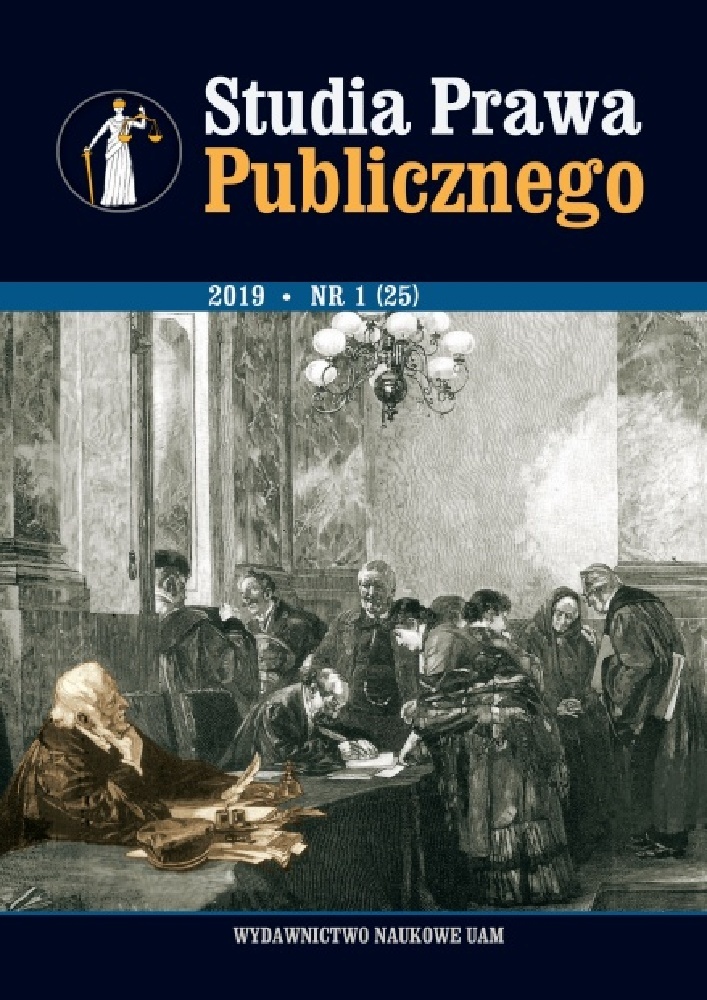Abstract
The subject of the article are the issues related to problems arising in the practice of entities conducting therapeutic activity concerning the stay of a patient who is a minor or incapable of independent living and who no longer requires treatment in an entity providing health services, but is in need of permanent care, when the family does not want to provide this care and does not take the patient from this entity. The legal regulation relating to the subject matter in question contained in the current regulations provides entities providing health care services with instruments aimed at disciplining the patient’s family so that the family can fulfil their duty of care and collect the patient from this entity after the end of treatment. The persons obliged to do so are the legal representatives and persons who have a statutory duty to maintain the patient. If they refuse to collect the patient, health care providers are entitled to arrange for sanitary transport to bring the patient to the place of his or her previous stay. The costs of such transport are borne by a specific municipality, which has the right of recourse against the persons responsible. It is also possible to charge these persons or the patient himself with the costs of further, unjustified stay in this entity. However, the solutions adopted are not without drawbacks that make it difficult to enforce the care of the patient and to cover the costs of further unnecessary hospitalisation. The aim of the study is to identify the weaknesses of the current regulation, which is to bring about a solution to the problem of patients not collected by the family, so important for the practice of medical entities, and to propose the way of solving them.
References
Borowicz K., Puzoń W., Ryba M., Ustawa o działalności leczniczej z komentarzem oraz wybranymi aktami wykonawczymi, Warszawa 2012.
Dercz M., Rek T., Ustawa o działalności leczniczej. Komentarz, Warszawa 2014.
Dubis W., Komentarz do art. 369 Kodeksu cywilnego, w: Kodeks cywilny. Komentarz, pod red. E. Gniewka i P. Machnikowskiego,Warszawa 2013.
Jędrejek G., Komentarz do art. 60 Kodeksu rodzinnego i opiekuńczego, w: Kodeks rodzinny i opiekuńczy. Komentarz aktualizowany, LEX/el. 2018.
Nowak-Kubiak J. Ustawa o działalności leczniczej. Komentarz, Warszawa 2012.
Pyrzyńska A., Komentarz do art. 369 Kodeksu cywilnego, w: Kodeks cywilny. Komentarz, t. 3, Zobowiązania. Część ogólna, pod red. A. Kidyby, Warszawa 2010.
Pyziak-Szafnicka M. Wielość dłużników i wierzycieli, : System Prawa Prywatnego, Prawo zobowiązań - część ogólna, t. 5, pod red. E. Łętowskiej, Warszawa 2012.
Walasek-Walczak U., Komentarz do art. 30 ustawy o działalności leczniczej, w: Ustawa o działalności leczniczej. Komentarz, pod red. F. Grzegorczyka, Warszawa 2013.
Sikorski S., Komercyjne świadczenie usług medycznych przez szpitale publiczne, Warszawa 2017.
Zawada K., Komentarz do art. 369 Kodeksu cywilnego w: Kodeks cywilny. Komentarz, pod. red. K. Pietrzykowskiego, t. I, Warszawa 2018.
License
Copyright (c) 2019 Katarzyna Rybarczyk

This work is licensed under a Creative Commons Attribution-NonCommercial-NoDerivatives 4.0 International License.

